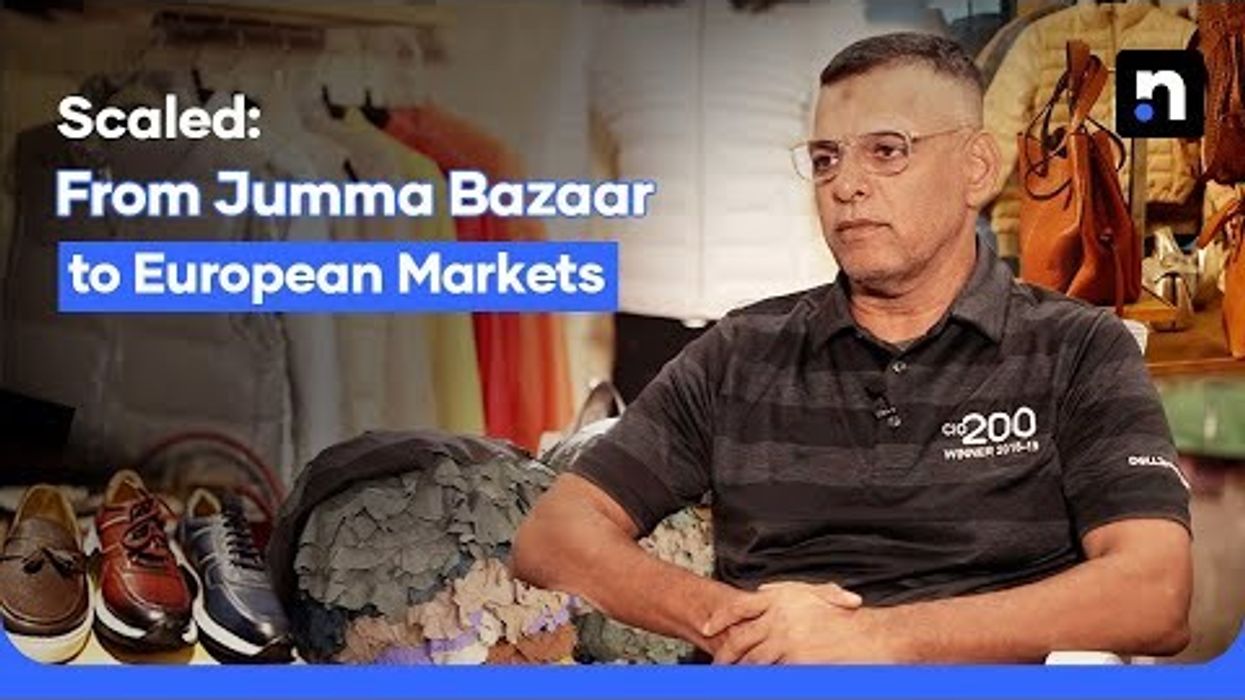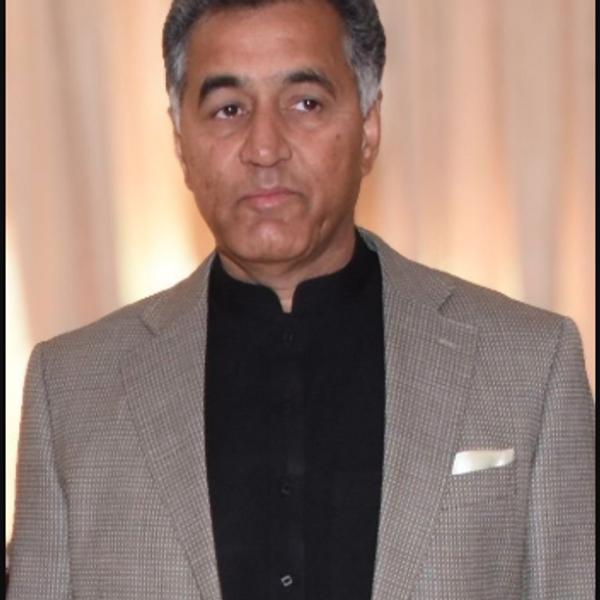Scaled: From Karachi's Jumma Bazaar to international success: Shujat Ali's inspiring journey
He’s the man behind a thriving leather export business, working with global giants like Zara, Tommy Hilfiger, Guess, H&M, and more
Sheraz Ahmed
Correspondent
Sheraz Ahmed is a professional with 12 years of experience in journalism. He worked in as News Reporter in leading News channels like Geo News, Dunya tv, Aap News and 92 News hd. Currently he is affiliated with Nukta Pakistan as Correspondent.
The Designer company, based in North Karachi, manufactures world-class leather jackets for export.
Years ago, Shujat Ali was selling baby frocks in Karachi's busy Jumma Bazaar. Today, he leads a successful leather export business, working with global brands like Zara, Tommy Hilfiger, Guess, and H&M. Shujat’s inspiring journey from humble beginnings to international success is a testament to his dedication and vision.
Speaking to Nukta, CEO Shujat Ali shared his story: "In the beginning, small tasks kept coming up. Like selling frocks at a stall, I did photography at night. But for professional work, I couldn't find a stable place.
So, in 1991, I started the leather business on a very small scale with just three thousand rupees' worth of leather.”
“Initially, I made fewer than 200 jackets and sold them to an exporter who sent them abroad. The first shipment was very well received. We started producing export goods locally, taking orders from other exporters.
I had a passion for seeing people wear leather jackets, which inspired me to focus on the leather business. This gave me self-confidence.
“Our company primarily exports to Europe because the prices are good, and we send high-fashion products. To the US, we send commercial products as prices are lower there. In Europe, leather is in high demand, whether for shoes, gloves, or bags. We've yet to fully tap into that market.
“Our leather export potential is significant. The industry can easily reach exports of up to $10 billion dollars.
The leather industry is Pakistan's second-largest. The real skill is not just making good garments but making top-grade jackets from low-quality skin, adding so much fashion that they look unique. This philosophy is the same for Zara and Tommy Hilfiger.
In Pakistan, record animal culling means you can get the whole year's supply at once. However, much of it is exported in raw form, missing out on the value addition sector. If the same material were supplied to garment, bag, and shoe factories, we would become competitive in international markets, increase jobs, and have more investment opportunities.
No company in Pakistan makes as much profit as the leather industry. To benefit from this, we need to explore new markets, such as Scandinavian countries. China also has great potential, as it has a significant demand for leather products, despite being a manufacturing country."
Shujat Ali’s journey highlights the vast potential of Pakistan's leather industry and the importance of exploring new markets to maximize growth and profitability.
Watch the video to learn more!








Comments
See what people are discussing